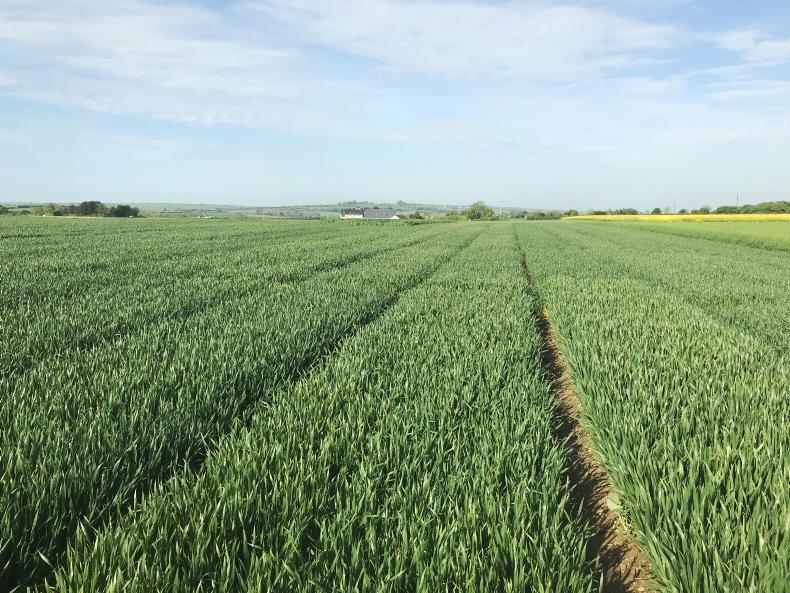Whether the climate change debate is taking place in an atmosphere of unjustified panic or calm logic is not the issue. The fact of the matter is that farmers are caught up in it, regardless of the carbon efficiency of our ruminant output. Forestry has been put forward as one of the natural solutions in a farming context. A few weeks ago, I was fascinated to listen to a lecture on the New Zealand approach.
New Zealand’s greenhouse gas emissions owe even more to agriculture than is the case for Ireland. While New Zealand takes the understandable line that they will not let their efficiency in ruminant production – dairy, beef and sheep – be jeopardised by ill-thought-out international policies, they are still taking steps to mitigate whatever penalties might be imposed. One of their most powerful is farmer incentives to allow farmers retain the carbon credits generated by tree growth.
There is an international price for carbon – at the moment, it’s about €15/t. A New Zealand forest grows 30t to 40t of carbon equivalent per hectare per year and during the lifetime of the planted areas (30 to 40 years), these carbon credits are building up in the farmer’s or forest owner’s account and are repaid at harvest.
The assumption has to be that the cost of carbon is going to continue to rise as governments scramble to meet their national obligation to meet climate change and greenhouse gas commitments.
While there is no establishment grant payable in New Zealand, if a farmer is willing to give up the ownership to the government of the first six years of carbon credits, then establishment costs will be broadly covered.
This kind of policy option is well worth considering in an Irish context, especially if some type of carbon quota per farm is coming down the tracks.
The New Zealand attitude to forestry is based not just on carbon capture but also on a booming Asian demand for soft wood, especially from China.
I was fascinated that the group I met proudly proclaimed New Zealand as having the best of all worlds – the sunshine of Spain and the rainfall of Ireland.
Read more
Nuffield blog: a global tour from east to west
NDC addresses gap between food origin and consumers
Whether the climate change debate is taking place in an atmosphere of unjustified panic or calm logic is not the issue. The fact of the matter is that farmers are caught up in it, regardless of the carbon efficiency of our ruminant output. Forestry has been put forward as one of the natural solutions in a farming context. A few weeks ago, I was fascinated to listen to a lecture on the New Zealand approach.
New Zealand’s greenhouse gas emissions owe even more to agriculture than is the case for Ireland. While New Zealand takes the understandable line that they will not let their efficiency in ruminant production – dairy, beef and sheep – be jeopardised by ill-thought-out international policies, they are still taking steps to mitigate whatever penalties might be imposed. One of their most powerful is farmer incentives to allow farmers retain the carbon credits generated by tree growth.
There is an international price for carbon – at the moment, it’s about €15/t. A New Zealand forest grows 30t to 40t of carbon equivalent per hectare per year and during the lifetime of the planted areas (30 to 40 years), these carbon credits are building up in the farmer’s or forest owner’s account and are repaid at harvest.
The assumption has to be that the cost of carbon is going to continue to rise as governments scramble to meet their national obligation to meet climate change and greenhouse gas commitments.
While there is no establishment grant payable in New Zealand, if a farmer is willing to give up the ownership to the government of the first six years of carbon credits, then establishment costs will be broadly covered.
This kind of policy option is well worth considering in an Irish context, especially if some type of carbon quota per farm is coming down the tracks.
The New Zealand attitude to forestry is based not just on carbon capture but also on a booming Asian demand for soft wood, especially from China.
I was fascinated that the group I met proudly proclaimed New Zealand as having the best of all worlds – the sunshine of Spain and the rainfall of Ireland.
Read more
Nuffield blog: a global tour from east to west
NDC addresses gap between food origin and consumers









SHARING OPTIONS